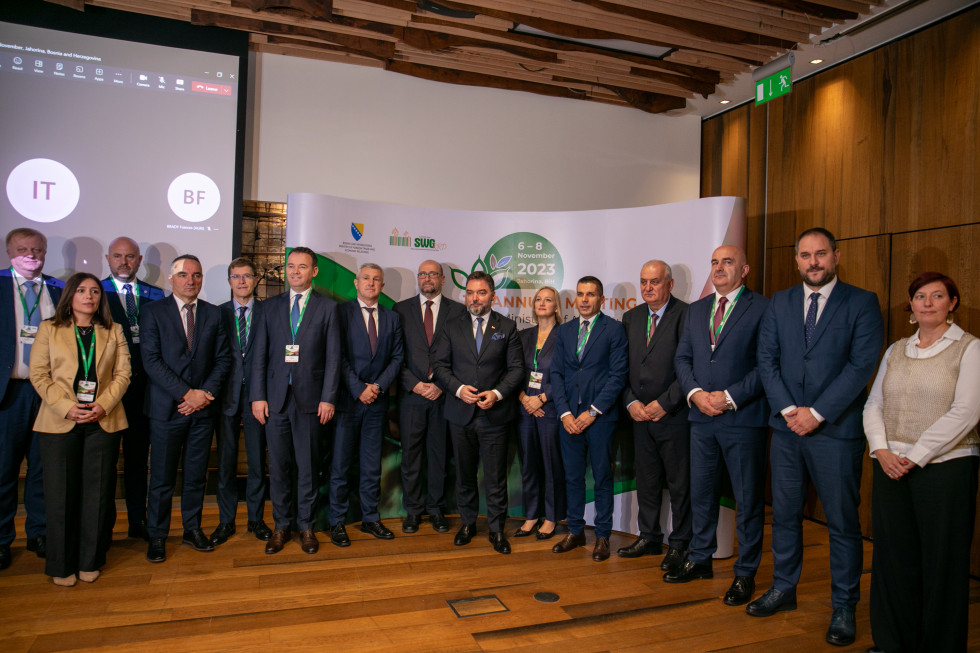Regional Rural Development Standing Working Group in South-Eastern Europe on approximation to the EU and the Common Agricultural Policy

Skupinska fotografija udeležencev zasedanja. | Author Ministrstvo za kmetijstvo, gozdarstvo in prehrano.
The hosts were Staša Košarac , Minister of Foreign Trade and Economic Relations of Bosnia and Herzegovina, and Boban Ilić, Secretary General of the SWG. All three entities from Bosnia and Herzegovina took over the one-year chairmanship of the SWG from Montenegro. For the first time, the meeting was attended by Moldova as a new full member of the SWG, as well as by Georgia and France as observers.
At the meeting, participants exchanged views on the approximation of the SE Europe countries to the EU, on the Common Agricultural Policy and on the pre-accession rural development programmes (IPARD III) for the programming period 2021-2027. They presented regional cooperation and the conclusions of the October Agricultural Policy Forum, as well as the integration of the agricultural and food sector to ensure food security in SE Europe. Attention was paid to the activities of the Regional Partnership for Climate Change Mitigation of the region, in response to the adoption and implementation of the Green Agenda for the Western Balkans, and to other topical issues of the region, the emergence of African swine fever and the urgency of climate change adaptation.
Maša Žagar, Director-General of the Agriculture Directorate, highlighted Slovenia's support for the Western Balkan countries on their path towards the EU. She stressed the importance of regional cooperation in strengthening Europe's and the region's food security and the need to adapt to climate change, including the increasing frequency of disasters, which hit rural areas hard and have a negative impact on the economy. “We need to keep rural areas populated, but we must not leave out the social aspect, as well as the importance of young people and women in rural areas,” stressed Director Žagar, among other things.

